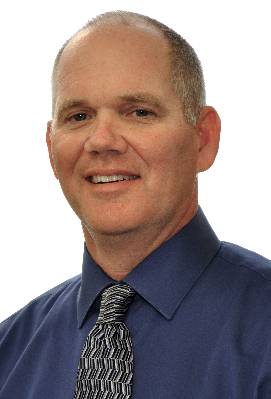Peter Dotray, Ph.D.
Email: peter.dotray@ttu.edu
Phone: (806) 834-3685
Address:
Department of Plant and Soil Science
Texas Tech University
Bayer Plant Science Building, Room 209B
2911 15th Street
Mail Stop 2122
Lubbock, TX 79409-2122

Background
Dr. Peter Dotray received his B.S degree from the University of Minnesota in Agronomy in 1986, his M.S. degree from Washington State University in Agronomy in 1989, and his Ph.D. degree from the University of Minnesota in Agronomy in 1993. He joined the Texas Tech faculty in 1993 and is currently the Leidigh Professor of Weed Science. He holds a joint appointment between Texas Tech University (52%), Texas A&M AgriLife Research (24%), and Texas A&M AgriLife Extension Service (24%). His responsibilities at Texas Tech include teaching Principles of Weed Science, Modes and Mechanisms of Herbicide Action, and RaiderReady: The Freshman Seminar. Dr. Dotray has completed 24 Master of Science students, six Ph.D. students, and eight M.S. non-thesis students. He currently has 2 graduate students in his program. Dr. Dotray has an active research program examining weed control systems in cotton, sorghum, and peanut, and a variety of minor crops. He serves as the Extension Weed Specialist in the Texas High Plains.
Curriculum vitaeResearch Interests
Dr. Peter Dotray's research focus is using an integrated approach to address weed science issues on the Texas Southern High Plains and beyond. Dotray is working towards the management of weeds in agronomic crops such as cotton, peanut, sunflower, sorghum, corn, guar, and sesame. His research addresses "real" issues at the grower level. "Research allows me to disseminate current information to our growers and students, and in turn our growers and students help develop research ideas," he says.
Dotray's research interests include developing effective and economical weed management systems in cotton and other crops grown in rotation with cotton. The development and use of herbicide-resistant varieties has improved weed management strategies in cotton, but effective and long term success in weed control systems must involve herbicides with different modes of action, as well as other weed management strategies such as mechanical, physical, cultural, and biological control. The use of reduced tillage systems provides new challenges in weed management because of the difficulty of incorporating preplant herbicides and the need to start clean.
Hot topics for the future include reduced tillage, weed specifics, new herbicide modes-of-action, and the development of herbicide resistant weeds. "With current technology, weed resistance is becoming more an important issue...it is necessary to be proactive in developing a "systems" approach to control weeds," says Dotray. Dr. Dotray continues to investigate economically sound and profitable week management programs for the Texas Southern High Plains.
Dr. Dotray's graduate students have their own projects but are required to get involved in other graduate student and general projects as well. Commenting on the satisfaction of teaching students through research, Dotray says "It is bringing in a new student, going through the scientific method, learning critical thinking, and then turning them loose. They must learn at Texas Tech with the ability to think critically and solve problems.
Related Links
Department of Plant and Soil Science
-
Address
Texas Tech University, Department of Plant and Soil Science, Box 42122, Lubbock, TX 79409 -
Phone
806.742.2838 -
Email
plantsoilscience@ttu.edu
